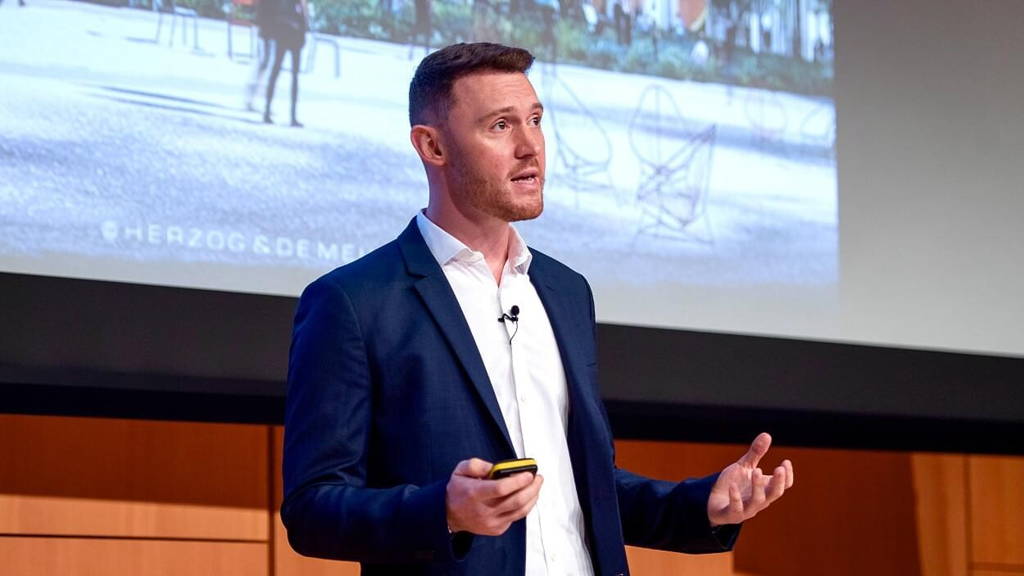DayOne, Switzerland’s leading digital health accelerator, is accelerating and scaling healthcare and life science ventures. What are key ingredients required to drive digital transformation in healthcare on a national and regional level?
In Europe, healthcare’s digital transformation is struggling against its fragmented market, its tough regulatory environment and finding access to growth capital for health ventures.
We’re solving these problems by providing financial support for promising companies, providing guidance from the best expertise via our community and access to multiple markets via DayOne’s unique position in the Basel Area, which has access to some of healthcare’s biggest clients and three of the top five digital health markets: France, Germany, and Switzerland. I believe these are the key ingredients needed to drive the digital transformation on both the national and regional level.
One of the goals of DayOne is a “sustainable approach to healthcare.” What elements of innovation in the Swiss healthcare system can be a model on the road to sustainable healthcare, considering that not all countries can afford to spend 12% GDP on healthcare?
The appetite for innovation is much higher in Switzerland than in most other countries, with Switzerland consistently being ranked the most innovative country in the Global Innovation Index. Four of the country’s universities are ranked in the top 25 most innovative globally, and for a country so small – there is innovation happening everywhere.
Finally, Switzerland has one of the best funding environments for venture capital and other sources in Europe, which many other countries could learn from. I really believe we can’t create sustainable models for the future without thinking enough to invest in them.
One of the barriers startups and innovators face is the culture of working in silos in healthcare and regulatory hurdles to entry in the healthcare industry. How to break them?
Startups have to be extremely savvy to succeed in healthcare and so solutions need to be designed with their ability to overcome regulatory barriers right from the start. Anticipating possible future regulatory changes and creating solutions that are slightly ahead of the curve is the best way to succeed. To do this, you need an exceptional awareness of the regulatory landscape and an appetite for risk which naturally many entrepreneurs do not have. We’re trying to solve that with our playbook for scaling in Europe, which helps companies overcome these hurdles.
In recent years, many accelerators and hubs have been established, also by pharma companies. Digital health funding reached in 2020 and 2021 sums never seen before. Is it a sustainable way of driving innovation in healthcare?
Startups have to be extremely savvy to succeed in healthcare
Digital health presents an unprecedented opportunity to create human-centered healthcare with lower barriers to access than anything we have ever seen before. Recently, McKinsey Global Institute predicted that digital could achieve up to 20% efficiency in global healthcare costs by 2030. I’m convinced this is the best way to create more sustainable and affordable healthcare for more people in the future.
How has Swiss healthcare, including Swiss patients, benefited from DayOne’s activities so far?
On our way to becoming Switzerland’s biggest digital health accelerator, DayOne has helped launch, connect and mentor a number of innovative healthcare ventures.
Our success stories include startups that improve patients’ lives via medtech, medical devices, digital health, AI, nutrition, health monitoring, medical access, etc. We also recently won funding to invest in 20 early-stage patient-centric projects in Switzerland each year which we’re really excited about too. Our vision is to establish Switzerland and the Basel Area as leaders in patient-centered innovation to create better healthcare for as many patients as possible in the future.
Shouldn’t we start shaping the future of healthcare by reforming the system that is still stuck in old structures created before the era of computerization and new technologies like the internet and mobile phones? Shouldn’t we first change the reimbursement model and strengthen digital health literacy instead of pushing innovations that are great but too modern for the system we have today?
I think that this mindset is the reason why healthcare’s transformation has been so slow. The best way to reform the healthcare system and its reimbursement models is to demonstrate the value and necessity of doing so via new digital capabilities which engender reform. We’ve seen that the old structures are too comfortable to change at the speed needed on their own. Collaboration of new ventures and models with these structures is key to ‘going together.’ So that’s why DayOne is based in Europe’s Life Sciences capital and works with some of the biggest biopharma companies in the world.
During G20 Summit two years ago, you said that “we need to leverage value-based healthcare and innovative public-private partnerships to lower the cost of healthcare, improve patient outcomes and massively increase investments in order to achieve UHC. Would you please elaborate on that?
Value-based healthcare creates an opportunity to re-center reimbursement for healthcare around patient and population outcomes. When used at the macro-level, this can create a level playing field that can be used to attract investments in healthcare from both the public and private sector, which closes the access gap in low and middle-income countries.
Globally, more than half of the world’s population lacked access to essential health services even before the pandemic, so we really need new ways to attract investment in healthcare which changes that. Investing in outcomes over volumes creates an interesting imperative for efficiency, which could be essential to drive change.
You are the director of DayOne, previously worked as Lead of Global Coalition for Value in Healthcare by World Economic Forum, Project Lead at World Health Organization, and Strategy Consultant at NHS. What are the three things you’ve learned and now try to practice to drive transformation in healthcare?
The first one – collaboration is key. Healthcare is truly about partnership and working together. The second – patients are people who happen to have a disease. When you see them this way, you can innovate better. And the third – we need new structures to achieve the vision of healthcare for the future, so supporting entrepreneurs and innovative pioneers is absolutely vital.






